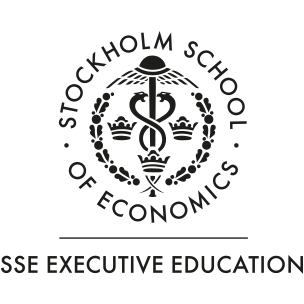How Intrum Justitia became a unified company
It was no easy task faced by Intrum Justitia’s HR director, Jean-Luc Ferraton. This venerable Swedish company had been acquiring businesses step-by-step and starting new subsidiaries in Europe. Now, 22 companies in 20 countries were to become a single, united, robust and competitive unit. But the economy was shaky. The financial crisis was at hand and competition stiffened. Customers were demanding more and more. To inspire all employees to use their own initiative while at the same time moving swiftly in the same direction, it was important that the company culture and values were carved in stone and that everyone’s actions strengthened the company’s brand.
How could he and his colleagues build and disseminate corporate culture and values and help to strengthen the brand? How could company values become so natural for management in every country, region and function that that they would act according to company policy in every situation?
He chose to work together with Stockholm School of Economics (SSE) Executive Education to build a tailored management program. It was a major success. Four years and 120 leaders from the organization later, he is very happy with his decision. The company is growing steadily and the company culture is strong and vibrant.
– I have already recommended SSE Executive Education to other companies. They have a good mix of skills, training center, program, content, faculty and speakers, while being able to organize the entire program very well. They are professional and innovative.
Market leading in credit management
Intrum Justitia is a listed Swedish company that celebrated its 90th anniversary in 2013. The headquarters, with CEO Lars Wollung in the lead, are in Nacka, Stockholm. With 3,600 employees in 20 European countries, Intrum Justitia is a market leader in credit management. Their business mission is to improve profitability for its client businesses by accelerating cash flow. Customers are mainly in telecommunications, electric utilities, retail trade, and finance and they are offered credit management services such as debt collection, credit reporting and invoicing.
Intrum Justitia considers itself a “catalyst for a sound economy”. Implicit in this is that everyone benefits from simple and safe trading. Increased business benefits society, enterprises and, ultimately, individuals.
A company in transition
Jean-Luc Ferraton is a Frenchman originally from Lyon. He moved to Sweden and his current HR executive post in 2006. Intrum Justitia was at that time a company that had just recently consisted of many different companies, each with their own culture, market and language.
– It’s a tough business climate these days and we find ourselves in a changing and challenging market. At the same time as wanting to meet our customers’ high expectations we will find it harder to collect on debts when many European countries are in financial crisis, with high unemployment and an increasing number of bankruptcies.
Jean-Luc Ferraton wanted to create opportunities to leverage the benefits of size, unite the company and build a common platform to meet the challenging operating environment.
– Intrum Justitia had previously consisted of 22 different companies and now we were to become one company and one group. We had seen from our employee survey a great need for training and education of our approximately 180 employees in management positions.
The vision for Intrum Justitia was clear and now he just needed to work out how this comprehensive training program could be implemented.
Quality most important
The solution was to start a single development program for all company executives. It would need an experienced partner to bring it to fruition and Intrum Justitia ultimately chose from between three proposals.
Jean-Luc Ferraton recalls:
– I was looking primarily for high quality of training. I chose IFL precisely because of the quality of the content along with the mixture of workshops and theory. The facility Kämpasten is also a very nice place and I feel that we have achieved a good balance of content for our investment.
Another important factor was locating the program in Sweden.
– We wanted our participants to experience Sweden and Stockholm. We wanted them to feel part of a Swedish company and to be proud of it.
Before the first program started, much thought was devoted to getting managers participating in the program to experience that they were part of a whole. A sense of belonging. It was also important to find a balance between theory and practice, and to provide relevant content to all participants regardless of function or geography.
Networking and Training
A group consists of 25 people. They are senior managers – but not CEOs. One or two people from each country participate. Jean-Luc Ferraton explains:
– We want to have teams that span borders and functions. The main objective is internal international networking.
The place is always Kämpasten, SSE Executive Education’s bespoke premises outside Stockholm. The group meets on the first evening for a dinner and introduction. The program itself begins the next day, mixing workshops with theory. Under the guidance of the brand researcher Mats Urde, brand and corporate culture are the focus. The group works together, and many experience something of an epiphany when they realize how much they have in common. In the evening an exclusive session awaits them with CEO Lars Wollung. For two hours, they meet for an open dialogue, and the chance to gain insight into what goes on at the top of the company and in the Board. It is obviously an exciting meeting for the participants. The meeting is fruitful for both sides as it also gives management a chance to make direct contact with the organization.
Another day revolves around Intrum Justitia’s leadership principles. Mats Eklund challenges participants throughout a busy day of training, workshops and discussions and explains the academic theory behind the principles of Team spirit, Results, Playing coach. It is a mix of theory and practice. Jean-Luc Ferraton is very satisfied with the content:
– The facutly is extremely good.
The days tend to pass smoothly.
– We’ve never had any practical problems. Everything works. Those little things that are so important for a successful result: that the faculty is on time or that the technology is in place. They do what they say they will do. It is pragmatic, simple and effective.
Extremely good evaluations and new contacts
The focus on development is seen as a success. Participants of all nationalities are satisfied and the program receives top marks in evaluations. More people want to participate than was ever imagined. The local CEOs want to send more and more participants. Knowledge of corporate culture has grown, but above all, the program has helped participants to feel that they are not alone. They have discovered how much they have in common across functions and borders. On their own initiative they continue to keep in touch, networking through their LinkedIn group, e-mailing each other and interacting on their own section of the intranet. New contacts have been created crisscrossing Europe.
Jean-Luc Ferraton believes that the focus on corporate culture also creates business benefits, over and above the goals of the training effort. An example of profitable networking lies in the fact that the company has received ten new clients in Ireland, where it was Spain’s CEO who made the original introductions.
Corporate culture developed
Jean-Luc Ferraton is satisfied. So far, 120 people have participated in Intrum Justitia’s development programs. They take the knowledge with them and spread it throughout the organization.
– We’ve never worked so much with values and behavior as we have now. We are getting better at it all the time. Now is the time to think about the next step. Should we do a follow-up or bring in more people?
Intrum Justitia is a good bit closer to becoming a unified company. Four years after the first program Jean-Luc along with Communications Director Annika Billberg leads a video version of the Eurovision song contest at Intrum’s Christmas party. The countries each contribute a movie and the vote is held live on a big screen. It is the European Union in practice. And as for the fact that Norway’s contribution won the contest at the Christmas party… Well I suppose we’ll just have to live with that.


